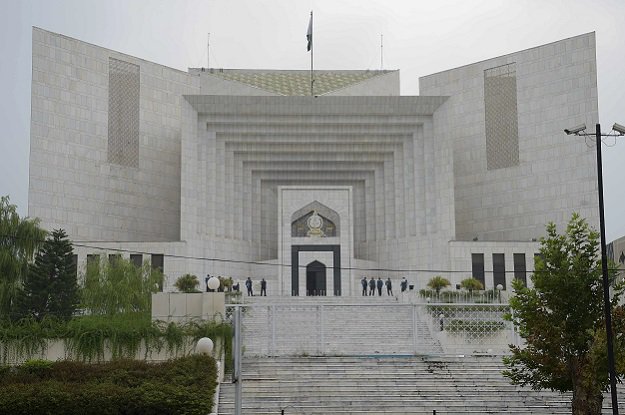
Last month, the three judge bench headed by Chief Justice Mian Saqib Nisar while hearing interior ministry’s plea against Lahore High Court order had referred matter to the interior ministry considering his plea related to awarding Pakistani citizenship to an Indian national, Asghar Haider. Directing the ministry to pass a speaking order within two weeks, the court had also suspended its earlier notification to charge Rs5 million from the Indian man for a citizenship.
Jang Group could be banned from court coverage, warns SC
Additional Attorney General Sajid Ilyas Bhatti on Thursday told the bench that the ministry is ready to consider but the respondent (Haider) did not fulfill legal requirements, adding that his passport and visa had been expired since 2007. The AAG stated that Haider should apply for renewing visa and passport to Indian Embassy in Islamabad first. Upon this, Haider stated that he was barred to travel from Multan and therefore couldn’t visit the embassy for the renewal of passport and visa.
He also said that he is not optimistic that the Indian authorities would cooperate with him for renewal of his documents. However, the bench observed that it is mandatory that he should have fulfilled all requirements for getting citizenship. It also said that at least the respondent should approach the Embassy in this matter.
Later the bench while granting him time has adjourned the matter for indefinite period.
The chief justice also remarked that court will examine legality of sub-section 2 of Section 10 of Pakistan Citizenship Act 1951 later, which allows the grant of citizenship to a Pakistani national’s foreign wife; however, it prohibits a foreign national husband of a Pakistani woman to attain citizenship of the country.
Attorney General of Pakistan (AGP) Khalid Javed Khan and amicus curiae Salman Aslam Butt called the present law discriminatory and supported the idea of giving Haider Pakistani nationality.
In 2016, the LHC directed the ministry to grant him citizenship. Subsequently, the interior ministry challenged the LHC order in the apex court, which asked the petitioner department to consider his case without charging fees. The government said the LHC did not consider Indo-Pak relations and the judgment will cause an influx of Indian men into Pakistan, causing a threat to national security.
The petition said Haider had applied for citizenship after marrying Rukhsana in 2004. He was later asked to deposit Rs5 million under the Pakistan Citizenship Act 1951. However, instead of depositing the payment, he filed a writ petition along with his wife for the grant of citizenship, which was allowed by the LHC Multan bench on May 18, 2016.
Court roundup: SHC rejects plea to hold PS-122’s winning notification
Later, the ministry challenged this order stating that the LHC has no jurisdiction to grant citizenship and it is mandatory to deposit foreign exchange equivalent to Rs5 million under Section 20 of the Pakistan Citizenship Act 1951.
The government contends that granting citizenship to a foreign woman married with Pakistani national cannot be treated in the same way as the marriage of a foreign man to a Pakistani woman.
It says the law cannot be said discriminatory and is not a violation of Article 25 of the Constitution, which states that all citizens are equal before the law and are entitled to equal protection of the law and that there shall be no discrimination on the basis of sex.
The government has expressed apprehension that the foreign-origin man after marrying and obtaining the Pakistani nationality would be free to divorce his wife and move freely in Pakistan.

















COMMENTS
Comments are moderated and generally will be posted if they are on-topic and not abusive.
For more information, please see our Comments FAQ